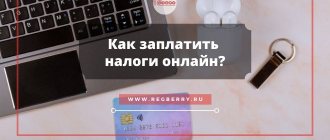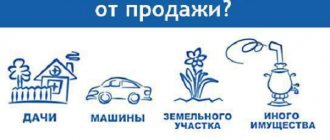Hello, dear readers!
As soon as an individual entrepreneur has entered into a civil law or employment contract with a hired employee and begins to pay him wages, he moves from the category of “self-employed” to the category of “employer”, becoming a tax agent.
It does not matter whether this contract is short-term, designed to perform a certain type of work, or long-term. In any case, the entrepreneur assumes the obligation to pay additional payments. But what taxes do individual entrepreneurs pay on employee salaries and how to calculate them correctly - this issue requires detailed consideration.
Payment of personal income tax for individual entrepreneurs using the simplified tax system without employees
Does individual entrepreneur pay personal income tax using the simplified tax system? If an individual entrepreneur receives funds from those types of activities that are reflected in the Unified State Register of Individual Entrepreneurs, he does not pay this tax to the budget, since the application of the simplified tax system implies an exemption from personal income tax on income received from business activities (with the exception of income from dividends and income subject to personal income tax under rates 35 and 9%). Basis - clause 3 of Art. 346.11 Tax Code of the Russian Federation.
If an individual entrepreneur receives income not related to business activities, his income is taxed at a rate of 13% in the same way as the income of any individual. At the same time, an individual entrepreneur can reduce his income by using the right to a tax deduction.
If an individual entrepreneur on the simplified tax system does not use hired workers in his activities, then the personal income tax of the tax agent is not paid to him
What has changed in insurance premiums in 2021
The list of non-contributory payments remains the same: maternity and child benefits, compensation, and severance pay. And the annual income limits have changed - contributions above the limit are calculated in a special way.
For example, the pension contribution is paid in the amount of 10% if the established limit is exceeded. In 2021, the maximum base for pension contributions will be 1,150 thousand rubles. For social insurance - 865 thousand.
For convenience, we present the data in a table.
| Insurance type | The size of the employee’s maximum income base, in thousands of rubles | Insurance premium rate | |
| 2018 | 2021 | ||
| Pension | 1021 | 1150 | General – 22% 10% – if the base is exceeded |
| Social | 815 | 865 | General -2.9% Contributions are not paid for excess amounts |
| Medical | Without limit | Without limit | 5,1% |
The general conditions for payment of insurance premiums will remain unchanged until 2021 – 30%.
The rates in this table are general in nature. Different rates apply for certain categories.
In particular, under certain conditions, an individual entrepreneur has the right to lenient tariffs on contributions for his subordinates:
| Individual entrepreneur entitled to a reduced tariff | Tariff rate 2018-2021 |
| Individual entrepreneur on the simplified tax system for certain types of activities, which is legislatively confirmed by Article 427, Chapter 34 of the Tax Code. Among them are only non-profit organizations operating in the fields of education, art, sports, as well as others listed, and charitable organizations. | For pension insurance – 20% For medical – 0% For social benefits (sick leave and maternity leave) – 0% |
Thus, some individual entrepreneurs can still pay 10% less in contributions than provided for by the general conditions.
It was also reported that if it is necessary to submit updated calculations for past periods (for example, if an error was discovered in the submitted data for 2021), then such calculations are submitted to the funds, and not to the tax office. The data is entered according to the model in force before January 1, 2017.
The procedure for employers to submit reports on insurance contributions to the Federal Tax Service is quarterly, before the 30th day of the month following the reporting period.
It is necessary to ensure that the details in the payments correspond to the details of the local Federal Tax Service. If you are using the 1C program, it needs to be updated so that the details are also updated.
When do you need to pay personal income tax for individual entrepreneurs using the simplified tax system?
An individual entrepreneur using the simplified tax system is required to pay personal income tax if he receives:
- Prizes from participation in a promotion carried out by product manufacturers or commercial enterprises. The accrual condition is winnings over 4 thousand rubles (clause 2 of article 224 and clause 28 of article 217 of the Tax Code of the Russian Federation).
- Material benefits from interest savings. The income on which tax will be paid is calculated based on the difference of 2/3 of the refinancing rate and the amount of interest specified in the agreement. If the loan is received in foreign currency, income is calculated based on 9% per annum minus the interest specified in the agreement (clause 2 of Article 212, 224 of the Tax Code of the Russian Federation).
- Interest on deposits in rubles and foreign currency. For interest received in rubles, non-taxable income will be calculated based on the refinancing rate of the Central Bank of the Russian Federation + 5%. If interest is received in foreign currency, non-taxable income is calculated based on 9% per annum (Article 224 of the Tax Code of the Russian Federation).
- Dividends from activities in third-party organizations (Article 275 of the Tax Code of the Russian Federation).
- Income not related to business activities: gifts, lottery winnings, from the sale of one’s own property, royalties, income from which the tax agent did not withhold tax (Article 228 of the Tax Code of the Russian Federation).
When hiring employees or attracting individuals under civil contracts, the individual entrepreneur is obliged to transfer personal income tax to the budget from the employees’ earnings as a tax agent (clause 6 of article 226 of the Tax Code of the Russian Federation).
All payments
See the full list of payment orders:
- For a description of the fields and rules for payment orders, see here.
- Sample of filling out a payment order for payment of the simplified tax system in Excel and in Business Pack
- Sample of filling out a payment order (personal income tax for employees) in Excel and in Business Pack
- Sample of filling out a payment order for VAT payment in Excel and Business Pack
- Sample of filling out a payment order for payment of Property Tax in Excel and in Business Pack
- A sample of filling out a payment order for the payment of Income Tax in Excel and in Business Pack
- A sample of filling out a payment order for payment of the Fixed Contribution of Individual Entrepreneurs (PFR and FFOMS) in Excel and in Business Pack
- Sample of filling out a payment order (PFR, Social Insurance Fund contributions for employees) in Excel and in Business Pack
See also: Calculator (free) Salary and deductions.
Methods of paying personal income tax by individual entrepreneurs
Individual entrepreneurs on OSNO must necessarily pay personal income tax on the income received.
Step-by-step instructions for calculating and paying personal income tax by entrepreneurs on OSNO were developed by ConsultantPlus experts. Get a free trial access to K+ and watch the action guide.
Personal income tax must be paid in two ways:
- Advance payments, which from 2021 are calculated in a new way: from actually received (and not planned, as before) income and are transferred within the following terms:
- until April 25 - for the 1st quarter (until 04/27/2020 - taking into account the transfer from the weekend). Due to non-working days from March 30 to May 11, 2020, the deadline for paying the advance payment has been postponed;
- before July 25 - six months (until July 27, 2020);
- until October 25 - for the 3rd quarter (until October 26, 2020).
- After submitting the declaration to the Federal Tax Service, you must either pay additional tax or return the overpaid funds from the budget (offset for the future).
If the advance payment was transferred with a delay, penalties will be charged for the debt that arose for this reason (Article 75 of the Tax Code of the Russian Federation).
Where to pay contributions in 2021
From the beginning of 2021, tax authorities have assumed the obligation to accept insurance premiums from the population for all types of insurance. Previously, three different extra-budgetary structures were involved in this.
These changes became known in advance: in mid-2021, the State Duma adopted a law transferring the right to administer contributions to the Federal Tax Service, after which the Federation Council approved it. Federal Law No. 243 was officially adopted on July 3, 2021, and the Tax Code of the Russian Federation was supplemented with a new section and a new chapter 34 “Insurance premiums”.
In March 2021, representatives of the Cabinet of Ministers met in Gorki to once again discuss this issue.
Prime Minister Dmitry Medvedev listed in detail the purposes for which the tax service was transferred part of the powers of extra-budgetary funds:
- Reduce the administrative burden on business;
- Make the procedure for making contributions more convenient for taxpayers;
- Achieve a reduction in the number of inspectors and inspections;
- Reduce reporting documentation in connection with the “one window” principle: instead of several authorities, documents are submitted only to the tax service;
- Achieve automation of inspections;
- Strengthen payment discipline through enforcement measures so that the receipt of payment contributions increases rather than decreases.
In practice, the Federal Tax Service acts as an intermediary between funds and taxpayers.
This idea is not new - until 2010, when there was still a unified social tax, it was the Federal Tax Service that was responsible for collecting it. Then the unified social tax was abolished, and extra-budgetary funds were created for collections in various areas of insurance.
However, the funds could not cope with the burden of eliminating debts. The Federal Tax Service has effective tools for influencing and collecting arrears from unscrupulous payers, which should help collect funds.
We have been working under the new regime for two years now. The Federal Tax Service reports on success in administering contributions. In 2021, no changes in legislation are planned so far and contributions continue to be transferred to the tax office.
Tax adjustment and transfer
After calculating personal income tax and generating a declaration, you must either pay extra or return the tax from the budget (offset).
IMPORTANT! Starting from 2021, individual entrepreneurs do not submit a declaration in form 4-NDFL. Read about the presentation of 4-NDFL here.
At the end of the year, individual entrepreneurs submit a 3-NDFL declaration to their Federal Tax Service by April 30. Due to the introduction of a non-working days regime from March 30 to April 30, 2021, the deadline for submitting 3-NDFL for 2021 has been extended until 07/30/2020 (see Government Decree No. 409 dated 04/02/2020).
Read about filling out an individual entrepreneur's tax return here.
As for the individual entrepreneur who hires employees, he is an agent and must deduct tax from their salaries. The timing of tax payment depends on the type of income paid. Personal income tax from sick leave and vacation pay is transferred no later than the last day of the month in which they are paid, from wages and bonuses - no later than the day following the day of their payment (Clause 6 of Article 226 of the Tax Code of the Russian Federation).
We also draw your attention to the fact that individual entrepreneurs have the opportunity to use the right to deductions in relation to income that is subject to personal income tax at a rate of 13% (clause 3 of Article 210 of the Tax Code of the Russian Federation):
- standard (Article 218 of the Tax Code of the Russian Federation);
- social (Article 219 of the Tax Code of the Russian Federation);
- investment (Article 219.1 of the Tax Code of the Russian Federation);
- property (Article 220 of the Tax Code of the Russian Federation), except for deductions related to the sale of real estate and/or vehicles that were used in business activities (subclause 4, paragraph 2, Article 220 of the Tax Code of the Russian Federation);
- professional tax deductions (Article 221 of the Tax Code of the Russian Federation);
- in the form of losses from transactions with securities and transactions with financial instruments of futures transactions carried forward to the future (Article 220.1 of the Tax Code of the Russian Federation);
- in the form of losses from participation in an investment partnership as a result of their transfer to future periods (Article 220.2 of the Tax Code of the Russian Federation).
Do individual entrepreneurs pay personal income tax while on UTII, PSN and Unified Agricultural Tax?
Payment by an entrepreneur of UTII exempts him from paying personal income tax only in relation to income received from activities subject to UTII (clause 4 of Article 346.26 of the Tax Code of the Russian Federation).
If the “imputed” person receives income from activities for which the entrepreneur is not registered as a UTII payer, then personal income tax is paid on such income.
An individual entrepreneur using the patent system does not pay personal income tax on income from those types of activities for which a patent has been obtained. If in his activities he uses those types of activities that do not fall under the PSN, he must pay personal income tax on income from these types of activities and submit a 3-NDFL declaration to the tax authorities.
Individual entrepreneurs who are agricultural producers and pay the unified agricultural tax are exempt from personal income tax in terms of income received from business activities (clause 3 of article 346.1 of the Tax Code of the Russian Federation). However, there is an exception for certain income. Thus, an individual entrepreneur on the Unified Agricultural Tax pays personal income tax on income from dividends and income subject to personal income tax at a rate of 35 and 9%.
If an individual entrepreneur on UTII, Unified National Social Economy or PSN uses the labor of employees in his activities, he has the obligation to withhold tax from their wages. It is paid at the place of registration of the individual entrepreneur. Before April 1 of the next year, it is necessary to submit information to the Federal Tax Service on income paid to employees and withheld tax in Form 2 of Personal Income Tax, and quarterly reporting in Form 6-NDFL.
Results
If an individual entrepreneur pays income to employees or attracts individuals under civil contracts, then, regardless of the taxation system applied, he performs the duties of a tax agent, which means he is obliged to withhold and pay personal income tax on income paid, submit reports in form 2-NDFL and 6 -NDFL.
Under OSNO, the income of individual entrepreneurs is subject to personal income tax, and the obligation arises to pay advance payments and submit a 3-personal income tax declaration.
When applying special regimes, individual entrepreneurs are exempt from paying personal income tax on income received from business activities. But it is important to take into account that in the application of one or another special regime there are nuances and exceptions in which the payment of personal income tax becomes mandatory.
Sources: Tax Code of the Russian Federation
You can find more complete information on the topic in ConsultantPlus. Free trial access to the system for 2 days.






